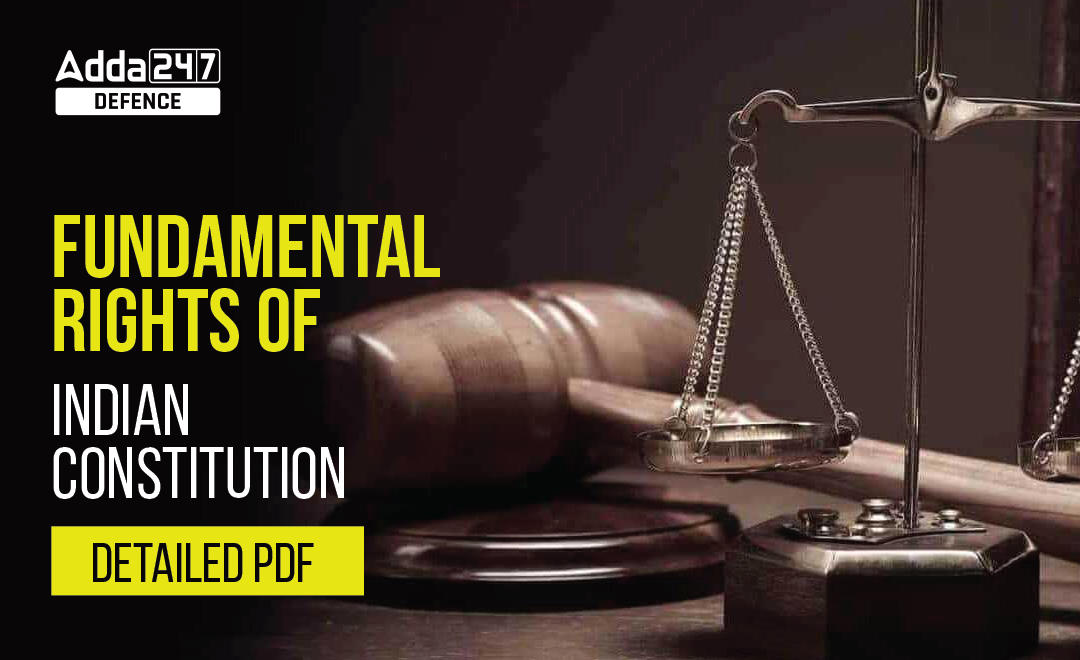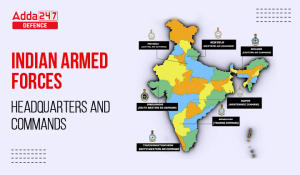Fundamental Rights of Indian Constitution
Fundamental Rights are a set of rights guaranteed to all citizens of India under Part III of the Indian Constitution. These rights ensure that every citizen has the freedom and autonomy to live a dignified life.
There are six fundamental rights enshrined in the Indian Constitution. These fundamental rights are guaranteed to every citizen of India and are considered to be the cornerstone of Indian democracy. They are specifically provided for in Part III (Articles 12 to 35) of the Constitution, and are justiciable, meaning that the citizens can approach the courts for their enforcement.
The right to property was initially included in the list of Fundamental Rights as Article 31. However, the 44th Constitutional Amendment Act of 1978 eliminated it from the list of Fundamental Rights and established it as a legal right under Article 300A in Part XII of the Constitution.
Fundamental Rights Role
The Fundamental Rights of the Indian Constitution play a crucial role in protecting the rights and freedoms of the citizens of India. Some of the key roles played by these rights are as follows:
- Protection of Individual Rights: The fundamental rights protect the rights of individuals against the arbitrary actions of the state. They ensure that citizens can exercise their freedoms without fear of interference or harassment by the state or its agents.
- Promotion of Equality: The fundamental rights promote the values of equality and non-discrimination. They prohibit discrimination on the grounds of religion, race, caste, sex, or place of birth and ensure that all citizens are treated equally before the law.
- Preservation of Democracy: Fundamental rights are essential for the preservation of democracy in India. They protect the right to free speech, assembly, and association, which are essential for the functioning of a democratic society.
- Promotion of Social Justice: The fundamental rights promote the values of social justice and ensure that the disadvantaged sections of society are protected against exploitation and discrimination.
- Mechanism for Enforcing Rights: The fundamental rights provide a mechanism for citizens to enforce their rights. The Constitution provides for the right to approach the courts for the enforcement of fundamental rights.
Fundamental Rights with Articles
Here are the Fundamental Rights enshrined in the Indian Constitution with their respective articles:
- Right to Equality (Article 14-18):
- Article 14: Right to Equality before the law and equal protection of laws.
- Article 15: Prohibition of discrimination on grounds of religion, race, caste, sex, or place of birth.
- Article 16: Right to equality of opportunity in matters of public employment.
- Article 17: Abolition of untouchability.
- Article 18: Abolition of titles except for military or academic distinctions.
- Right to Freedom (Article 19-22):
- Article 19: Protection of certain rights regarding freedom of speech, expression, assembly, association, and movement.
- Article 20: Protection in respect of conviction for offences.
- Article 21: Protection of life and personal liberty.
- Article 21A: Right to Education.
- Article 22: Protection against arrest and detention in certain cases.
- Right against Exploitation (Article 23-24):
- Article 23: Prohibition of traffic in human beings and forced labour.
- Article 24: Prohibition of employment of children in factories, etc.
- Right to Freedom of Religion (Article 25-28):
- Article 25: Freedom of conscience and free profession, practice, and propagation of religion.
- Article 26: Freedom to manage religious affairs.
- Article 27: Freedom from payment of taxes for promotion of any particular religion.
- Article 28: Freedom from attendance at religious instruction or religious worship in educational institutions.
- Cultural and Educational Rights (Article 29-30):
- Article 29: Protection of interests of minorities.
- Article 30: Right of minorities to establish and administer educational institutions.
- Right to Constitutional Remedies (Article 32):
- Article 32: Remedies for enforcement of Fundamental Rights including the right to move the Supreme Court or a High Court for the enforcement of rights.
Fundamental Rights PDF
The Fundamental Rights PDF provides a comprehensive overview of these rights, including their historical background, legal provisions, and significance in safeguarding individual liberties and promoting social justice. It typically includes detailed explanations of each fundamental right, such as the right to equality, right to freedom of speech and expression, right to freedom of religion, right to protection from discrimination, right to life and personal liberty, and more. You can check the PDF below and download it to read all the articles included under the Fundamental rights of the Indian Constitution in detail –



 List of All Important Inventions and The...
List of All Important Inventions and The...
 Headquarters and Commands of Indian Arme...
Headquarters and Commands of Indian Arme...
 List of the Indian Cities Situated on Ri...
List of the Indian Cities Situated on Ri...
